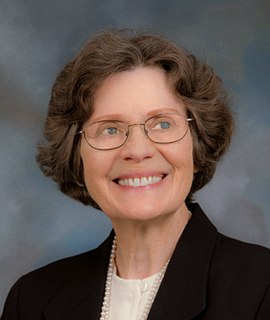A Quote by Dorothy Denning
We have never really had absolute privacy with our records or our electronic communications - government agencies have always been able to gain access with appropriate court orders.
Related Quotes
It may be true that encryption makes certain investigations of crime more difficult. It can close down certain investigative techniques or make it harder to get access to certain kinds of electronic evidence. But it also prevents crime by making our computers, our infrastructure, our medical records, our financial records, more robust against criminals. It prevents crime.
I am very proud of our Supreme Court - it is one of the best worldwide. Nevertheless, since the 1990s, we have seen a certain imbalance in the relationship between the judiciary, the parliament and the government. The Supreme Court behaved in an activist way. We have to debate the degree to which such Supreme Court activism is appropriate.
Today, it's not the same playing field as when I first became a lawyer in 1977, where the government had been restricted by our wonderful Supreme Court Justice Earl Warren's court rulings. Now it's all going the other way, the flow is against the defendant, against anything that could really help a client. But you still fight it, you do what you can do. It's all there is.
In my lifetime, it's the Supreme Court, not Congress, that integrated our public schools, that allowed people of different races to marry, and established the principle that our government should respect the value of privacy of American families. These decisions are the legacy of justices who chose to expand American freedom.
In our country, [habeas corpus ] means that if you've been sentenced and convicted in a state court, either to death or to some other kind of sentence, you have the right to petition a federal court to review what happened to you. And until [Bill] Clinton, you had three, four, five, even more years I collect records of people who have been on death row for eight, 10, 12, 14 years - this is before Clinton - who finally got a decent lawyer, usually a pro bono lawyer, and an investigator, and were able to find out - they - they're but approved that they're - that they were innocent.
When I was director of the CIA, I knew that we had been - and I'm choosing my words very carefully here - effective in our expansion. We really had - expansion of government agencies and expansion of use of contractors. Effective, we were; efficient, we weren't. And so, as director of the CIA, I went after the inefficiencies part.

































